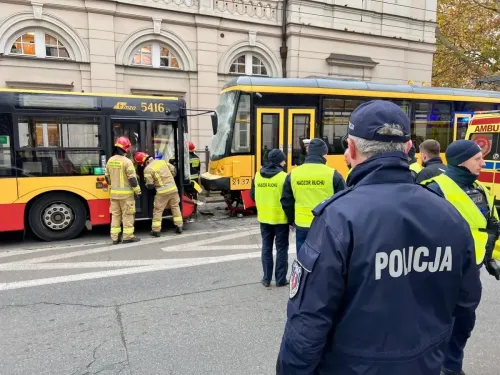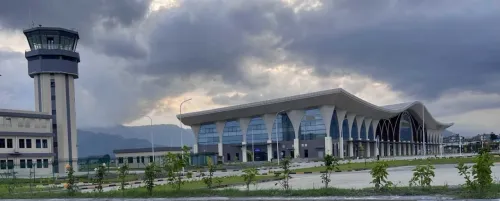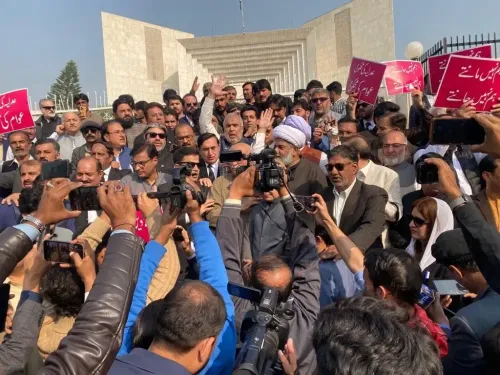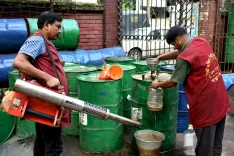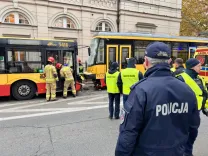Why Have Unionised Workers at 14 Airports Suspended Their Strike While Incheon Airport Walkout Continues?
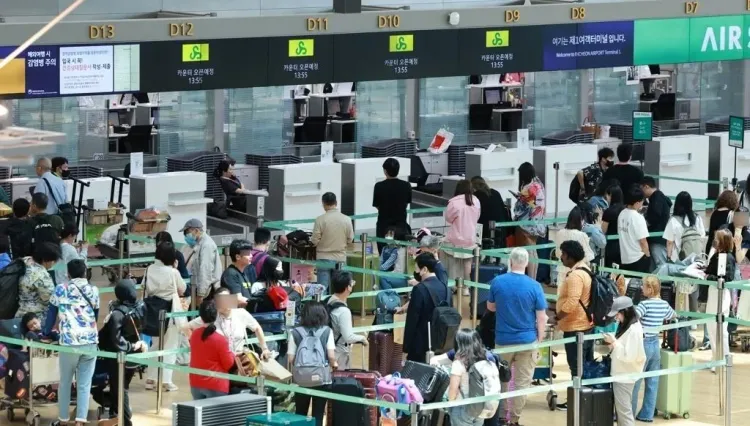
Synopsis
Key Takeaways
- Unionised workers at 14 airports have paused their strikes.
- Incheon International Airport continues its indefinite walkout.
- Concerns about travel disruptions during the Chuseok holiday are rising.
- A significant percentage of people are opting out of traditional charye ceremonies.
- Demands include better working conditions and flexible shifts.
Seoul, Oct 4 (NationPress) Unionised workers at 14 airports throughout South Korea have chosen to halt their strikes as of Saturday. However, staff at Incheon International Airport, the country's primary airport, announced they will persist with their indefinite walkout, stirring concerns about potential travel interruptions during the Chuseok holiday.
The employees at the 14 airports plan to return to their roles until Oct. 14, when discussions are slated to occur between the presidential office and representatives from the state-run Korea Airports Corp., as reported by the Yonhap news agency.
They stated in a press release, “Should the government and relevant authorities neglect to take responsible actions following the talks, we will recommence our general strike on Oct. 15.”
Meanwhile, union members at Incheon International Airport will uphold their comprehensive strike throughout the Chuseok festivities, which run from Friday until the following Thursday.
On Wednesday, approximately 15,000 unionised employees from 15 airports, including those responsible for runway repairs, firefighting, and electrical maintenance, initiated an indefinite strike.
The workers are advocating for enhanced working conditions, including more flexible shifts, and have vowed to maintain their strike until their demands are satisfied.
In a related note, a survey indicated that 60% of South Koreans do not intend to conduct the traditional ancestor-honoring ceremony, known as “charye,” during this year’s Chuseok holiday. This suggests a transformation in attitudes towards ancestral practices.
According to the survey carried out by the Korea Rural Economic Institute (KREI), only 40.4% of participants expressed plans to prepare a charye table during the extended holiday that commenced on Friday.
Charye is a traditional rite performed during major holidays like Chuseok to pay respect to deceased family members. It usually involves a formal setting with various traditional Korean dishes and liquor offered in reverence.
This statistic reflects a significant decline from 2016, when 74.4% of respondents reported observing the ritual, as noted by the institute.

